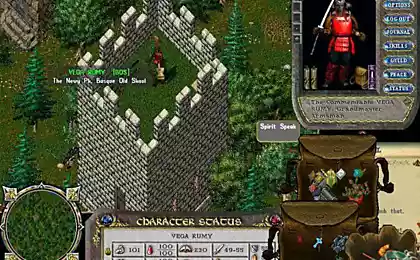1928
"After three too late." The book, which has become a reference for many parents.
The book "After three too late," a Japanese engineer and entrepreneur Masaru Ibuka has been translated into many languages and has become a real tool for parents who are keen to develop children literally from the cradle. It laid down the basic tenets of early development and the call to take care of the intellectual heritage of the children from the moment of their birth and even before. Since the book was published, the world of parents is divided into 3 camps: some believe that Masaru Ibuka did not write anything sensible, others did "After three too late," his reference book, and the third ... simply do not read! If you are not familiar with the world famous guide to raising a child - probably this article is useful for you.

25 most important principles of child rearing.
1. Most take the baby in her arms. Tactile communication plays a big role in his intellectual development.
2. allow a child to sleep in his bed. Joint sleep has on his development impact.
3. Do not lisp with the child. Talk to him on adult language from birth.
4. Tend to your baby every day. Even 1 lesson per day leads to surprising results.
5. Do not quarrel with the child. He feels the very negative and disturbing.
6. Encourage his desire to communicate with other children. It stimulates the mind perfectly, competitiveness and commitment to leadership.
7. The child need not only a mother, but also dad. Moreover, communication between father and child should not be any restrictions.
8. Do not rebuke a child to defend their interests, and even quarrel. Quarrels develop communication skills.
9. Praise and punish children need care. Praise for the cause, especially boys, and rarely punish.
10. Do not impose your child what is good and what is bad. Let it be typed life experience (with your help) and eventually he begins to distinguish it.
11. Encourage and support the interests of the baby to anything. Create the necessary conditions.
12. Always repeat the material covered. This forms the correct circuit in the brain of the child.
13. Do not assume children's fantasy silly. The ability to dream and fantasize generates creativity.
14. Memorize poetry. It trains memory.
15. Try to surround your baby the best manifestations of humanity. Listen to classical music together, consider a work of art, to read fiction.
16. It is not necessary to restrict child. Vsë he does his hands, he develops his intellect and creative inclinations.
17. Stimulate expression of unconventional thinking. Templates bring ordinary man.
18. Do not buy a child vsë he asks. Excess toys distracting, and then it will be difficult to learn.
19. Develop tactile toddler. Invites him to touch objects of different materials - soft and hard, heavy and light, smooth and rough.
20. Buy baby toys details. All kids feel great joy because they can assemble them yourself.
21. Develop fine motor skills of the child - with crafts from clay sculpting, create applications, cut paper and fold the figures. As is well known, "the child's mind - his fingertips».
22. Walk with the child as often as possible. Walking is very useful, as it drives the 400 muscles of the body 639.
23. Do not expect the result of the work of the child. It is important for the process, not the result. Let her work as much as it is interesting.
24. do not force the will of the baby. Forcing him to do something against their will, you're undermining his faith in himself.
25. Do not take the child as their own property. Firstly, it is not. Secondly, it can cause frustrating.

Do you agree with Masaru Ibuka? Tell friends who are in anticipation of the baby, or who already have children, these principles of education from the Japanese author. What do you think, in our reality it is also worth using?
via takprosto cc

25 most important principles of child rearing.
1. Most take the baby in her arms. Tactile communication plays a big role in his intellectual development.
2. allow a child to sleep in his bed. Joint sleep has on his development impact.
3. Do not lisp with the child. Talk to him on adult language from birth.
4. Tend to your baby every day. Even 1 lesson per day leads to surprising results.
5. Do not quarrel with the child. He feels the very negative and disturbing.
6. Encourage his desire to communicate with other children. It stimulates the mind perfectly, competitiveness and commitment to leadership.
7. The child need not only a mother, but also dad. Moreover, communication between father and child should not be any restrictions.
8. Do not rebuke a child to defend their interests, and even quarrel. Quarrels develop communication skills.
9. Praise and punish children need care. Praise for the cause, especially boys, and rarely punish.
10. Do not impose your child what is good and what is bad. Let it be typed life experience (with your help) and eventually he begins to distinguish it.
11. Encourage and support the interests of the baby to anything. Create the necessary conditions.
12. Always repeat the material covered. This forms the correct circuit in the brain of the child.
13. Do not assume children's fantasy silly. The ability to dream and fantasize generates creativity.
14. Memorize poetry. It trains memory.
15. Try to surround your baby the best manifestations of humanity. Listen to classical music together, consider a work of art, to read fiction.
16. It is not necessary to restrict child. Vsë he does his hands, he develops his intellect and creative inclinations.
17. Stimulate expression of unconventional thinking. Templates bring ordinary man.
18. Do not buy a child vsë he asks. Excess toys distracting, and then it will be difficult to learn.
19. Develop tactile toddler. Invites him to touch objects of different materials - soft and hard, heavy and light, smooth and rough.
20. Buy baby toys details. All kids feel great joy because they can assemble them yourself.
21. Develop fine motor skills of the child - with crafts from clay sculpting, create applications, cut paper and fold the figures. As is well known, "the child's mind - his fingertips».
22. Walk with the child as often as possible. Walking is very useful, as it drives the 400 muscles of the body 639.
23. Do not expect the result of the work of the child. It is important for the process, not the result. Let her work as much as it is interesting.
24. do not force the will of the baby. Forcing him to do something against their will, you're undermining his faith in himself.
25. Do not take the child as their own property. Firstly, it is not. Secondly, it can cause frustrating.

Do you agree with Masaru Ibuka? Tell friends who are in anticipation of the baby, or who already have children, these principles of education from the Japanese author. What do you think, in our reality it is also worth using?
via takprosto cc
5 gourmet salads, which will decorate your holiday table, and add variety to the menu!
The shocking statement of doctors: the constant use of oatmeal poses a health hazard!























